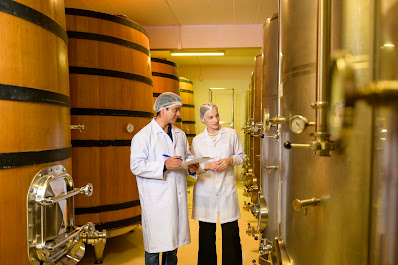Optimising Molasses Distillation: The Power of Enzymes in Ethanol Production
Ethanol production from molasses has long been a cornerstone of the bioethanol industry, but achieving high efficiency in fermentation and distillation remains a challenge. Enzymes are now playing a pivotal role in optimising this process, leading to increased yields, reduced waste, and improved overall efficiency.
Enhancing Fermentation Efficiency
Molasses, a byproduct of sugar production, is rich in fermentable sugars but also contains complex carbohydrates and non-fermentable components that can hinder ethanol yield. Enzymes such as amylases, glucoamylases, and cellulases help break down these complex structures into simpler, fermentable sugars, ensuring that yeast can efficiently convert them into ethanol. This enzymatic action not only maximises sugar availability but also reduces the risk of residual sugar wastage.
Reducing Viscosity for Smoother Processing
One of the challenges of working with molasses is its high viscosity, which can complicate mixing and processing. Enzymatic treatments help break down polysaccharides and other viscous components, improving fluidity. This, in turn, enhances fermentation consistency, facilitates better heat transfer, and allows for more efficient distillation, reducing overall energy consumption.
Minimising Unwanted By-products
Traditional fermentation methods can lead to the formation of undesirable by-products such as glycerol and organic acids, which reduce the final ethanol yield. Enzymes play a key role in directing metabolic pathways towards ethanol production while minimising the formation of these unwanted compounds. The result is a cleaner, more efficient fermentation process with higher ethanol recovery rates.
Improving Sustainability in Ethanol Production
The use of enzymes in molasses distillation not only boosts productivity but also contributes to sustainability. By increasing ethanol yield from the same amount of raw material, enzymatic processes reduce overall resource consumption. Additionally, they help lower the environmental footprint by decreasing wastewater loads and reducing the energy required for distillation.
Conclusion
Enzymes are transforming the ethanol industry by enhancing the efficiency of molasses fermentation and distillation. Through improved sugar conversion, reduced viscosity, and minimised by-product formation, enzymatic solutions are paving the way for a more productive and sustainable bioethanol sector. With ongoing advancements in enzyme technology, the future of ethanol production is set to become even more efficient, cost-effective, and environmentally friendly.




Comments
Post a Comment